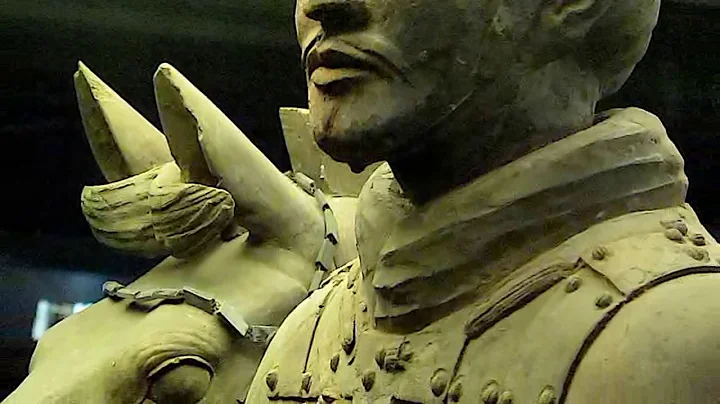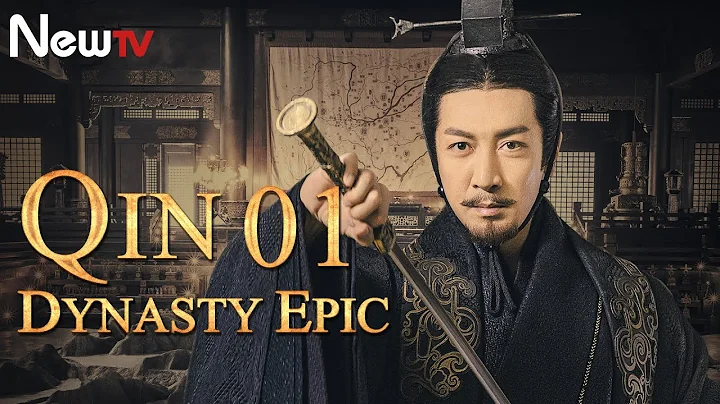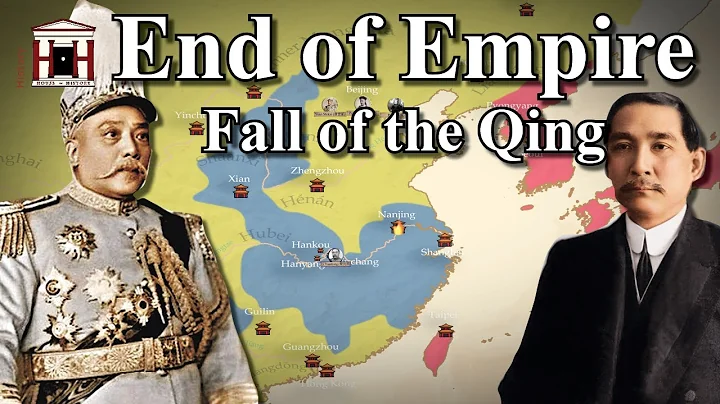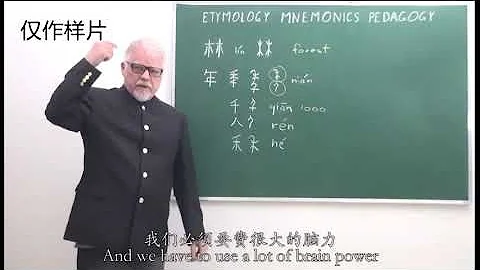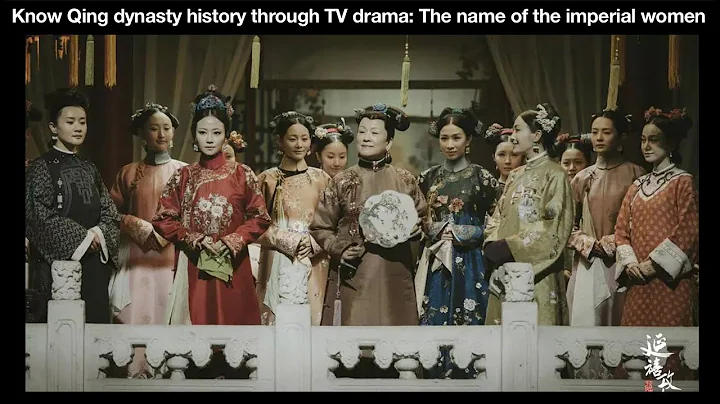Since the Qin Dynasty, the competition for the Hetao Plain has been an important part of the game between the Central Plains dynasties and the northern nomads. If the Central Plains Dynasty occupies the Hetao Plain, it will not only obtain excellent horse farms and "fortress Jiangnan" agricultural base, but also form a proactive threat to the Mongolian grassland . On the contrary, if the nomads occupy the Hetao Plain, they will obtain a good pasture and an outpost that threatens the Guanzhong region of the Central Plains Dynasty. The strategic position of the Hetao Plain to both sides is evident.
The Ming Dynasty has driven the Mongols out of the Hetao Plain since the founding of the People's Republic of China. Why did the Ming Dynasty completely abandon this valuable area during the and Jiajing periods?

Picture above_ The Hetao area at the end of the Qin Dynasty and the beginning of the Han Dynasty
- During the Tianshun years, the Mongols invaded the Hetao Plain in large numbers.
The Hetao Plain is located in today's Inner Mongolia Autonomous Region and Ningxia Hui Autonomous Region. It is an alluvial plain along the Yellow River , in the bay of the Yellow River. In the early years of Hongwu , generals Xu Da and Li Wenzhong eliminated the forces of Tolebo and Kong Xing who occupied the Hetao, and expanded the profile of Timur (Wang Baobao) and drove to the base camp of the Northern Yuan Dynasty, Haraholin. Seize the Hetao Plain. Taizu of the Ming Dynasty Zhu Yuanzhang set up Dongsheng Guard here, connecting the guards in Ningxia and Shanxi, and it was under the jurisdiction of King Zhu Fang of Jin. After Chengzu and Zhu Di ascended the throne, he moved Dongshengwei to other areas, but still maintained control of the Hetao area.
During the Hongxi and Xuande years, the Ming Dynasty no longer expanded its territory to the north. The northern defense line continued to shrink inward, and the frequency of Mongolian invasions from the south increased significantly. During the Zhengtong period, the Oara people unified the grasslands and then entered the border with the invaders from Hami, Datong, Liaodong and other directions. A small number of herdsmen went to settle in the Hetao grassland. At this time, there were loopholes in the northern defense of the Ming Dynasty. Ming Yingzong Zhu Qizhen, under the instigation of the great eunuch Wang Zhen, led a mighty army of 500,000 (actually more than 200,000) to the border. Drive away.

Above picture_ Wang Zhen’s stone carvings at Zhihua Temple in Beijing
Everyone knows the result. Wang Zhen was talentless but liked to pretend, and Zhu Qizhen was "young" and more frivolous. Under the attack of a military veteran like Yexian, they were completely unable to organize defense and counterattack, and were severely defeated in Tumu Fort. Zhu Qizhen failed to break through and was captured by the Oara people. Ye Xian then took him south to attack Beijing, trying to use him to realize his dream of restoring and the Yuan Dynasty . However, Ming Dynasty Emperor Zhu Qiyu and Yu Qian were so powerful that they relied on the second-line troops in the capital to repel Yexian.
Although the battle to defend the capital was victorious, the severe situation on the northern border has not been alleviated. After Ye Xian was killed due to political struggles, the Oara forces withdrew from the Monan region, and the Tatar forces revived. The leader Po called himself the Grand Master, and appointed Mark Gulgis, the son of the former Khan of the Golden Family, Totuo Buhua, as the little prince. , the Ming Dynasty began to call the Tatar Khan "little prince". In the last year of Jingtai (1457), famine occurred on the grasslands, which caused the Mongols to continue to invade Ningxia and Yansui areas. More and more tribes fled to the unattended Hetao Plain. This area of lush water and grass has undoubtedly become their new home.
Zhu Qizhen launched the " Seize the Gate Change", became emperor again, and changed Yuan Tianshun. Although he was more attentive this time as emperor than before, he still did nothing to defend the northwest border. The three leaders of the Tatar tribe Maolihai , Aluochu, and Polohu competed to enter the Hetao Plain during this period, thereby threatening the Shaanxi region. The Ming Dynasty lost control of the Hetao area for the first time.

Above picture_ The change of seizing the door
- The "suppression" movement had twists and turns
In 11464, Zhu Qizhen died, and his son Ming Xianzong Zhu Jianshen came to the throne. This emperor's talents and achievements were definitely among the best in the Ming Dynasty. To a large extent, he cleaned up the mess left by his father, and to a certain extent reversed the decline of the Ming Dynasty's national power after the Civil Engineering Revolution .In order to rehabilitate Yu Qian, he appointed a group of virtuous ministers such as HT1 Shang Ren HT2 to govern the country, which changed the political atmosphere and once had the atmosphere of HT1 being governed by benevolence and propaganda. He solved the problem of refugees in Jingxiang, pacified the banditry in Tengxia in the southwest, and plowed holes in the Jianzhou Jurchen tribe in the northeast that refused to obey the control, delaying the rise of the tribe for a hundred years.
During his reign, the most commendable achievement was to take back the Hetao Plain from the Mongols. Since the early years of Chenghua (1465), Maoli children have repeatedly invaded Guyuan and Datong through the Hetao Plain, and requested tribute from the Ming court. The Ming court believed that the Maoli boy was cunning and untrustworthy, and refused to pay tribute to him. The Maoli children became angry and intensified their southern invasion, attacking Guyuan, Anding, Weizhou and other places. Because they did not attack cities and seize land, but snatched a handful of people and livestock and left, they were also called "tao bandits" by the Ming court.

Above_ Map of the Tatars in the Ming Dynasty
Faced with the increasingly fierce border harassment problem of Tatars , the Ministry of official affairs sent officials such as Cheng Wanli, the great scholar Li Xian, the Minister of War Wang Fu and Sun Jizong, etc. They all advocated the implementation of "suppression", which meant that after ascertaining the distribution and activities of the Mongolian tribesmen entering the Hetao, they would select elite soldiers and generals to attack quickly and wipe out them all. Zhu Jianshen agreed to implement the strategy of "suppressing tao", so he ordered the right deputy capital censor Wang Yue to send troops to "suppress tao". In 1469, Wang Yue commanded the Ming army to attack Longzhoubao (northeast of today's Jingbian County, Shaanxi Province) and Zhenjingbao (northeast of Jingbian County, Shaanxi Province) from the west and Shenmu and Qiangbao (in today's Fugu, Shaanxi Province) from the east. County northwest) two-pronged attack, although a lot of gains, but the Ming army was not large enough to drive these Mongols out of the Hetao. In the next two or three years, there were constant proposals to organize an army of more than 100,000 people to "suppress Tao", but they were blocked by the Ministry of War Minister Cheng Xin, Du Yushi Ma Wensheng and others on the grounds that the cost was too high.
In the ninth year of Chenghua (1473), things took a turn for the better. The Tatar leaders Mandulu, Boluohu and Jiasilan set out from Hetao and invaded Ningxia, Shaanxi, Gansu and other places. Wang Yue found out that the Mongols' lair was in Hongyanchi (now northwest of Dingbian County, Shaanxi Province), so he mobilized 4,600 Ming troops to raid the Hongyanchi. They destroyed the Mongolian lair and beheaded more than 300 people, winning the "Victory of the Red Saltchi". Several Tatar leaders saw the base explosion and quickly retreated northward out of the Hetao area. The Ming army successfully recaptured the Hetao Plain. Afterwards, the Ming army achieved a series of victories against the Tatars, such as the "Victory at Weininghai", which severely damaged the power of various Mongolian ministries. However, Zhu Jianshen did not listen to the minister's suggestion to immigrate to the Hetao area to farm. It has to be said that it is a pity, and it also paved the way for the Mongols to regain their occupation of the Hetao.

Picture above_ Zhu Jianshen (1447-1487), that is, Ming Xianzong
Ming Xiaozong After Zhu Youtang ascended the throne, the young prince Dayan Khan of the Tatar tribe unified the Monan region and became a new major trouble on the northern border of the Ming Dynasty. His raids on the northern border of the Ming Dynasty were more intense than when Maoli was a child. He led his troops to re-enter the Hetao area, plundered hundreds of thousands of livestock and countless people in Gansu, and killed many soldiers and border residents. Zhu Youtang couldn't bear it anymore and launched a large-scale "suppression" campaign in July of the eleventh year of Hongzhi (1498). and successively elected seven people, but none of them were qualified to be the leader of the organization. Wang Yue, a veteran who was over seventy years old, had to be recommended out of the mountain again and was ordered to take charge of Gan and Liang border affairs.
After Wang Yue took office, in view of the fatigue of the veterans in the Ganliang area, he mobilized 6,000 troops from Ningxia and divided the troops into three groups to attack the Tatars. They achieved forty-two beheadings and captured 241 horses, camels, and cattle. The results of thousands of sheep and weapons. The results of this battle were obviously not as good as the operation in Hongyanchi, but the Mongols mainly raided the border areas in the form of rogue bandits, so as a "bandit suppression" operation, it was still successful.

Picture above_ Zhu Youtang, Emperor Xiaozong of the Ming Dynasty (July 30, 1470 - June 8, 1505)
In the winter of the thirteenth year of Hongzhi (1500), the little prince returned to the Hetao area and invaded Yansui.Zhu Youtang appointed Duke Bao Zhu Hui as the chief military officer and eunuch Miao Kui as the supervisor. He led an army of 100,000 to "suppress the trap". As a result, Zhu Hui only beheaded three levels and captured more than a thousand livestock. When he came back, more than 10,000 people were rewarded. Zhu Hui was an obvious persimmon picker, but the really powerful little prince's own army of 100,000 cavalry invaded Guyuan and Ningxia from Huamachi and Yanchi, burning, killing and looting along the way, causing heavy losses to the northwest territory of the Ming Dynasty. This incident also became one of the biggest failures of Zhu Youtang's ruling career.
Zhu Youtang, Emperor Xiaozong of the Ming Dynasty, has been known as a wise and benevolent monarch since ancient times. However, looking at his governance level and achievements, it is really not worthy of his name: the "suppression" operation made much noise but little rain, and the problem of military corruption became more and more serious, which had a negative impact on the Mongols. Border violations are ineffective. In contrast, Ming Wuzong Zhu Houzhao, who has always been known as the "faint emperor", personally fought against Dayan Khan in person, so that Dayan Khan never dared to step into the land of Ming Dynasty until his death.

Picture above_ Zhu Houzhao (October 27, 1491 - April 20, 1521), that is, Emperor Wuzong of the Ming Dynasty
- Strategic short-sightedness and political struggle caused the Hetao to be eventually lost. The great defeat of Dayan Khan brought peace to the northern border for some years. But before that, general Sanbian Yang Yiqing proposed a strategy for farming in the Hetao, and put forward six suggestions, including building the east wall of Dingbian camp and repairing the northwest fortress of Ningyuan base camp. As a result, he was dismissed from office and imprisoned because he offended the eunuch Liu Jin. Therefore, during the Zhengde reign, no one proposed to restore the Loop.
After Ming Shizong Zhu Houcong came to the throne, the new Mongolian little prince joined the "Taolu" in the Hetao area to invade the border again. Zhu Houcong ordered that the border should only be defended and not take the initiative, but such passive decision-making cannot solve the problem. Shanxi censors He Zan, Chen Hao and others proposed that only by recapturing the Hetao can border peace and security be ensured. What really caused the Ming court to pay attention to this suggestion was the Mongolian invasion that occurred in the 25th year of Jiajing (1546). Thirty thousand Mongolians invaded Yan'an from the Hetao area and killed a large number of border residents in Sanyuan and Jingyang.
The governor's minister on three sides Zeng Xian and other border ministers once again proposed to Zhu Houcong the matter of restoring the Hetao, advocating launching large-scale military operations in winter and spring, and proposed eight strategies: "One day is to determine the dynasty, the other is to establish Outline and Discipline, the third is to review the mechanism, the fourth is to select generals, the fifth is to appoint talents, the sixth is to pay enough, the seventh is to clarify rewards and punishments, and the eighth is to cultivate skills. "Zhu Houhuang agreed with his suggestion and allocated 300,000 taels of silver to him. Action funding.

Picture above_ Zeng Mian (1509-1548), courtesy name Zizhong, was born in Huangyan County, Taizhou Prefecture, Zhejiang Province (now Huangyan District, Taizhou City)
In May 11547, Zeng Mian led an army to raid the Tatars in Hetao and drove them away. Exited the Loop area. After the initial victory, Zeng Mian submitted a "Request to Restore the Hetao" to the court and proposed a detailed plan to restore the Hetao. Zhu Houcong ordered the Ministry of War to discuss with the court officials. After the discussion, most of the officials agreed with Zeng Mi's complex plan. Zhu Houcong issued an edict: "The invaders occupying the Hetao are a danger to the country. I have been here for a long time, so I don't want to have ministers who have any duties. Now and then, the ministers have carefully considered the strategies, and they will work with many officials to express their loyalty and plan. "It will be clarified with pictures. It will be determined by hearing." If this policy can be truly implemented, it is entirely possible to regain and maintain the Hetao area.
is not afraid of opponents who are like gods, but is afraid of teammates who are like pigs. Yan Song, one of the most treacherous ministers of the Ming Dynasty, entered the cabinet at this time and had a political struggle with Xia Yan, the then capital of the cabinet. Xia Yan greatly appreciated Zeng Mian's suggestion and strongly supported his plan to advance the recovery of the Hetao. However, after agreeing to Zeng Mian's complex plan, a landslide occurred in Shaanxi, which caused Zhu Houcong, an "old Taoist priest" who was superstitious about Taoism , to have doubts about the plan.In order to overthrow Xia Yan, Yan Song ignored the plan to recapture the country in Hetao. His plan to attack Zeng Mian was a manifestation of great success and militarism. He even instigated his comrades and the chief military officer of Gansu to frame Qiu Luan to cover up Zeng Mian. For meritorious service, he embezzled military pay and bribed Xia Yan.

Above picture_ Xia Yan half-length photo
Xia Yan did a good job in seeking the country, but he was not good at seeking the country. Faced with Yan Song's overt and covert attacks, Xia Yan could only palely defend in front of the emperor that his support for Zeng Mian was for the sake of border peace. Yan Song found that many ministers did not agree with the conspiracy, so he ordered them to impeach Xia Yan to block his speech. Zhu Houcong had previously had doubts about the complex operation, but now that he saw the officials impeaching Xia Yan, he ordered to remove Xia Yan from his post in the capital, arrest Zeng Mian and bring him to Beijing, and convict him together with other officials who supported the complex.
Yan Songzhen either doesn’t do it or never does it. Afraid that Xia Yan would come to power again, he used the incident of Tatar Anda Khan's invasion of Yansui and Ningxia from Hetao in 1548 to attack Zeng Mian's claim that he would return to power as an unreasonable provocation and cause trouble for the country. Zhu Houcong did not distinguish right from wrong and directly ordered Xia Yan and Zeng Xian to abandon the city and exile Xia Yan's wife. Yan Song got his wish and took the position of chief assistant, and no one dared to mention the plan of retaliation.
Zhu Houcong’s manipulation of political power is at the top level, but he is far behind in terms of national strategy. He deposed Xia Yan and appointed Yan Song, mainly out of the consideration of controlling the situation in the court and ensuring his absolute control over the ministers. But if he were an emperor with a grand strategic vision like Taizu and Chengzu, even if he deposed Xia Yan, he would still continue the complex plan. However, he chose to use the overlapping argument as a tool of political struggle, disregarding the peace of the soldiers and civilians in northern Xinjiang. Then andahan invaded the Beijing area, causing a huge shock in the "Gengshu Revolution", which was the consequences of Zhu Houcong's strategic shortsightedness.

Above picture_ Emperor Jiajing, Ming Shizong Zhu Houcong (September 16, 1507 - January 23, 1567)
The reason why the Ming Dynasty finally lost the Hetao Plain is that one of the reasons why the Ming Dynasty finally lost the Hetao Plain is that after the deaths of the two pioneering kings of Hongwu and Yongle , the Ming Dynasty's foreign strategy shifted from aggressive aggression to passive defense. The northern defense system gradually shrank inward, and there were fewer and fewer troops to defend the Hetao Plain. It was only a matter of time before the Hetao was occupied by the Mongols. The second is that after Chenghua, the overall combat effectiveness of the Ming army declined increasingly, and finances became increasingly tight, making the cost of recapturing and holding the Hetao increasing. The third issue is the strategic vision and level of the emperor. Zhu Youtang, Emperor Xiaozong of the Ming Dynasty, wanted to restore the Hetao but did not have the ability to govern. Zhu Houzhao, the Emperor Wuzong of the Ming Dynasty, and Zhu Houcong, Emperor Shizong of the Ming Dynasty, had the ability to do it but were unwilling to do it. In the end, the Ming Dynasty completely failed to regain the Hetao. Opportunity.
Finally, I have to say that Zhu Houcong had the opportunity to be the leader of ZTE. However, since the middle period of Jiajing period, he has been obsessed with manipulating power and pursuing mystical practices, which has led to political corruption, military corruption, and the formation of a situation of "Southern Japanese and Northern Captives". Until the demise of the Ming Dynasty, the Hetao Plain never returned to the hands of the Ming Dynasty. It can be seen that the "Public Security Shu" played by Hai Rui was indeed on point when criticizing Jiajing.
Author: Iron Cavalry Like the Wind Correction/Editor: Lilith
Reference:
[1] "History of the Ming Dynasty" "Records of the Ming Dynasty"
[2] Wang Tianshun "History of Hetao"
[3] Hu Changchun's "Jia Jing "discussed the restoration of Hetao" "Summary"
[4] Hu Fan "On the entry of the Mongols into the Hetao in the Ming Dynasty and the northern border defense in the Ming Dynasty"
[5] Wang Qiang "Study on the Hetao and border defense issues in the early and mid-Ming Dynasty"
The text was created by the team of the University of History, with pictures Originated from the Internet, the copyright belongs to the original author




